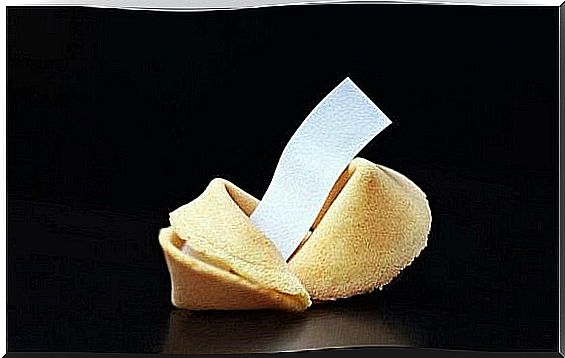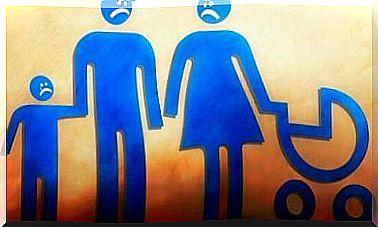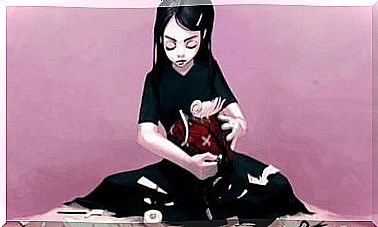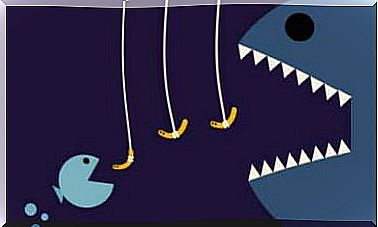Einhorns Lykkekake: En Teori Om Lykke

Einhorn’s theory of happiness defines the decisions you make every day to get away from what you do not want in your life. Think about it, it’s a simple idea, but at the same time extremely powerful. In fact, it is a different approach – as well as curious – that deviates somewhat from the classical perspectives of positive psychology.
It was a psychologist from the University of Chicago who proposed this theory. His name is Hillel J. Einhorn. It happened when he had one of the “eureka experiences” of the 1970s while opening a cake of happiness. Inside, it was a simple message: “Do not think of all the things you want that you do not have. Think of all the things you do not want that you do not have. ”
This simple reasoning inspired Dr. Einhorn to develop what we know as the theory of behavioral decisions. It defines the set of decisions and behaviors you practice to not only achieve what you want and long for, but also to try and avoid what completely obscures your happiness…

The 3 keys to Einhorn’s theory of happiness
Hillel J. Einhorn used to say that you are happier than you think. Faced with this statement, you can say “Really? How do I know that? ” To answer this, we remember an anecdote that the Greek sophist and poet Diagoras of Melos once explained.
He went to visit a shrine built for the sea god, Poseidon. There the poet was fascinated to see the beautiful sacrifices that the sailor families used to leave behind to ask the sailors to return safely to land. However, he also discovered an area where memories were left for all the men who had never returned and who were never found again. Diagoras from Melos shuddered and said something to himself.
He told himself that he was very lucky not to be a sailor. In this way he began to think that happiness meant avoiding certain anguish, situations and lifestyles. Although it was a bit selfish, it certainly meant a certain truth. In fact, this is exactly what Dr. Einhorn thought when he read the message in the happiness cake; the same one that served to express Einhorn’s theory of happiness.
What you do not have and want to have is like eternal suffering
The approach to happiness that Einhorn designed starts from the premise that many of us believe that we will be happy when we finally have what we want. It is the most classical way of thinking. However, it is also a source of suffering. Because if we always look at what we do not have, we will live in an eternal state of feeling that we are missing something.
“I get happy when I find my ideal partner”, “I get happy when I find a good job”, “How happy I get when I reach all my goals!” Let’s face it, you have long been persuaded to believe that only when you try hard enough, you will achieve what you want to be happy.
However, life is too complex, and being happy is not about effort. Sometimes you still feel empty, frustrated and as if you are missing something, despite having achieved something concrete. What can you do?
Be grateful
Einhorn’s theory of happiness emphasizes a concrete fact we have already mentioned. You’re happy, but you do not know. In fact , you’re happier than you think, you just have not realized it yet. Einhorn himself published a study in the 80s in which he pointed out something important.
He stated that well-being, happiness and satisfaction are part of your assessments and behavior. In fact, if you are not able to reason and realize what it is you have, you will never achieve the long-awaited happiness. Furthermore, focusing only on what you have can not only be a source of motivation, but also of suffering. There are those who will use skilled strategies to achieve what they want and will succeed, but this is not a constant. In fact, people do not always succeed.

Einhorn’s theory of happiness: What you do not want (and do not have) in your life
Einhorn’s theory of happiness, proposed in the 1970s, highlights an aspect which, although simple and obvious, is not without interest or reason. It is about the satisfaction of being able to move away from or defend yourself against what you do not want in your life. It may sound basic, but it does involve some extremely important actions.
This means, for example, being good at problem solving. It means being proactive in acting before adversity strikes you. Furthermore, it is to know how to deal with your own adversity when you experience it. It also means getting away from those who hurt you and developing skills to deal with stress and anguish.
In reality, this is not a particularly well-known perspective. However, it is both interesting and practical. At a time when so many self-help books and approaches to happiness abound, psychologist Hillel J. Einhorn left us with two valuable tips. Joy lies in appreciating what you already have, and taking action for what you do not want in your life.









